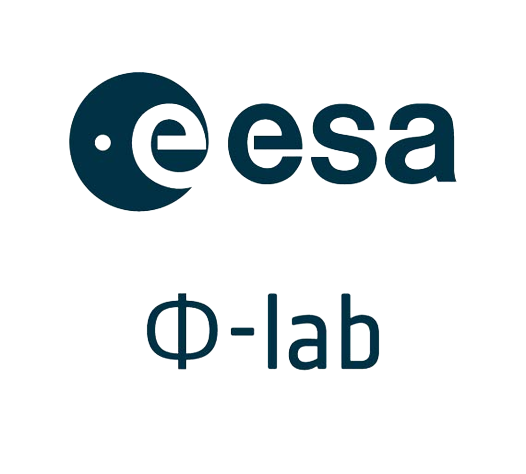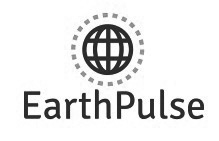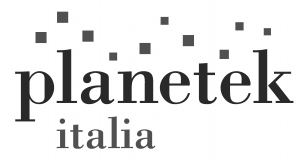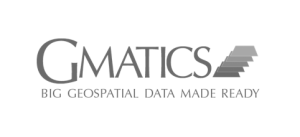Real-time insights, real-time impact
#OrbitalAI Challenge
Space mission awaits: Be a pioneer for in-orbit EO data processing and drive progress on Earth.
Ever wondered about being part of a space mission? OrbitalAI made that possible. We offered an exclusive chance to embark on a remarkable journey that explores the boundless potential of in-orbit data processing for Earth’s sustainability. Whether you’re a tech aficionado, a creative thinker, or a scientific enthusiast, we welcomed individuals from diverse backgrounds to join us in advancing the future of Earth observation (EO).
Imagine developing groundbreaking solutions that harness the power of AI and Earth observation data, propelling progress in business, industry, or science. At OrbitalAI, we believe in the collective brilliance of minds coming together to shape a better tomorrow. The selected finalist teams will have the fantastic opportunity to collaborate with top industry experts, refine their solutions and prepare it for the ultimate launch into space.
This isn’t just any opportunity—it’s a chance to leave a significant mark on the quest for Earth’s sustainability. By becoming a part of our global initiative, you’ll play a vital role in advancing the frontiers of science and protecting our precious planet. Join us now and set your imagination free!
The tracks
AI and Earth observation players, researchers, experts, and scientists from all around the world could participate in any of these two tracks:
- ESA’s Φsat-2 Track: 6U CubeSat orbiting Earth at 500 km with a multispectral camera in a sun-synchronous orbit. This space mission is currently under development by a European Consortium led by Open Cosmos (UK), alongside CGI (Italy), Ubotica Technologies Ltd (Ireland), Ceiia (Portugal), KP Labs (Poland), Geo-K (Italy), Simera Innovate GmbH (Switzerland), and Deimos (Spain).
- IMAGIN-e Track (ISS Mounted Accessible Global Imaging Nod-e, in collaboration with Microsoft and Thales Alenia Space): featuring a hyperspectral camera on the ISS.
Participants could gain further insights into the challenge through our webinars dedicated to this competition.
- W1 – Ideation training
- W2 – AI for Earth observation application
- W3 – AI model optimisation and prototype building
- W4 – How to pitch
The big prize
Two teams will get the opportunity to have their solutions running onboard the Φsat-2 mission or the International Space Station, meaning that their solution will be launched into space and have an in-orbit demonstration for their concept!
At the end of the challenge, the top teams were selected. They will work closely with the space mission team and determine which are the best two teams that will eventually have their solutions launched into space. Besides the chance of having their solution onboard a satellite, we will reward the top teams with various prizes ranging from invitations for visiting researchers to vouchers for computation or access to premium data.
The journey
Registrations are now closed.
The challenge was open worldwide to all EO or AI practitioners from students and early professionals to researchers, engineers and experts in the field. Check out the participants’ eligibility to know more about the registration.
Phase I: The open competition
During Phase I, participants submitted their best solution in the form of a Jupyter Notebook together with a PowerPoint presentation, saved as a .pdf file, and a pitch video of their solution.
After the first phase, the top teams will be selected for the next stage.
Phase II: Incubation & Production
The second phase starts in October 2023. During this phase, the selected teams will work on their solution together with the Φsat-2 consortium and the Φ-lab team, or with Microsoft and Thales Alenia Space for the IMAGIN-e track. The solutions will be tested and verified on the conditions of the mission’s payload.
In the end, the two best teams from each track will have the privilege to launch their solutions into space!
The context
The European Space Agency (ESA) has an exciting vision: creating a thriving ecosystem of Earth observation applications using edge computing in space. This groundbreaking challenge addresses the current obstacles in the flow of Earth observation data and paves the way for the next generation of applications.
By employing advanced AI techniques to process data directly onboard spacecraft, we can unlock the immense potential of onboard intelligence for Earth Observation. This approach promises enhanced efficiency, agility, autonomy, and reconfigurability in EO. Onboard processing in satellites is revolutionising space data by enabling faster and more efficient data transmission, reducing the dependence on ground-based processing, and enabling real-time decision-making.
In EO, end users require valuable insights and optimal decisions with minimal delay. That’s why significant research efforts have been dedicated to exploring onboard intelligence for EO applications, such as early detection of natural disasters, vessel incidents, and gas leaks. Onboard intelligence empowers us to identify low-quality EO data, such as cloud-covered satellite images or remote sensing images with limited relevant information and discard them. This not only saves costs but also minimises the need for data transmission to Earth.
Be part of a space mission
OrbitalAI makes you part of a space mission where you collaborate with leading experts in the field.
Explore edge computing in space
Change the paradigm of EO data flow and extract insights that will fuel ground-breaking solutions.
Address global challenges
You can contribute to solving critical issues and make a positive impact on the world by helping business, industry, and science.
The Winning Teams
IMAGIN-e Track
KPLabs
IMAGIN-e Track
IRT ST EXUPERY
IMAGIN-e Track
u3s _ lab
IMAGIN-e Track
#GOF
IMAGIN-e Track
TelePIX
IMAGIN-e Track
Latitudo 40
Phisat-2 Track
AI4EDofET
Phisat-2 Track
SAIS
Phisat-2 Track
IRT ST EXUPERY
Phisat-2 Track
Little Place Labs
Phisat-2 Track
OHB Hellas
Phisat-2 Track
SkyServe
Phisat-2 Track
TCSA _ AI
Phisat-2 Track
NLR _ AI4EO
Phisat-2 Track
TelePIX+KIOST
Phisat-2 Track
grEnOble
Rewatch the award ceremony!
In the OrbitalAI award ceremony, the winning teams of the Φsat-2 and IMAGIN-e tracks were announced. They heard more about the prizes of the OrbitalAI challenge, as well as the path that the winners will embark upon to launch their code into space!






